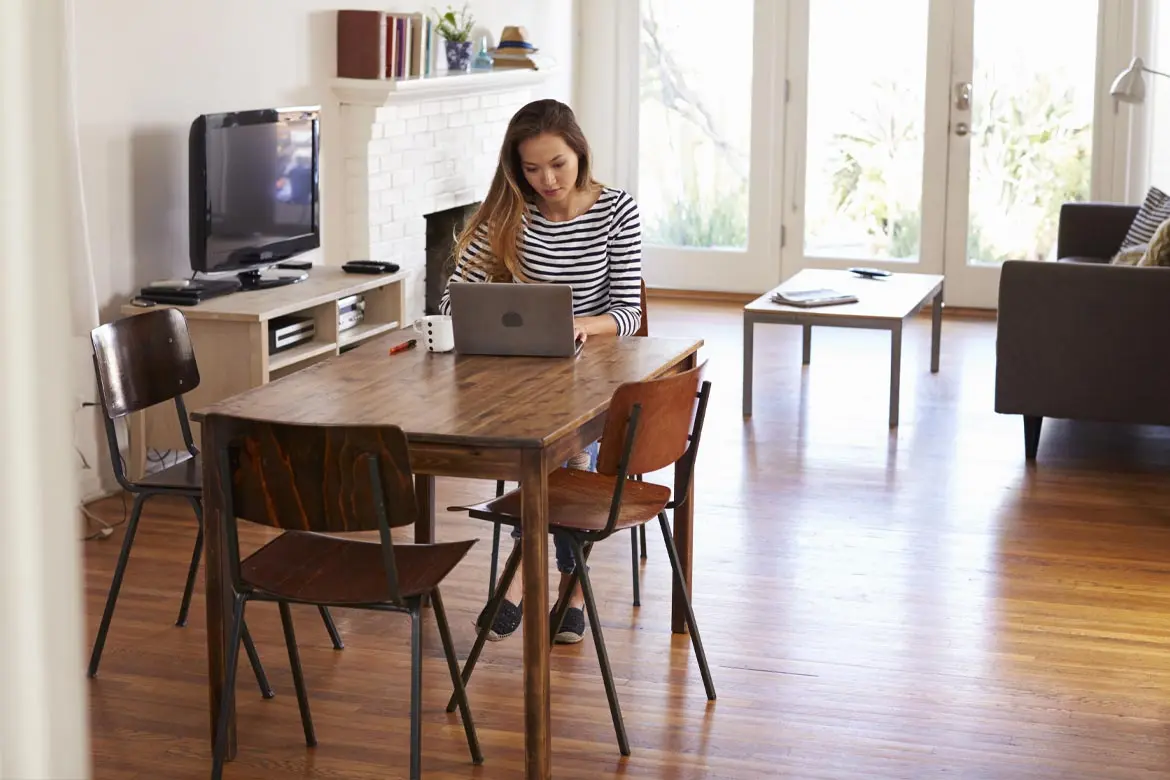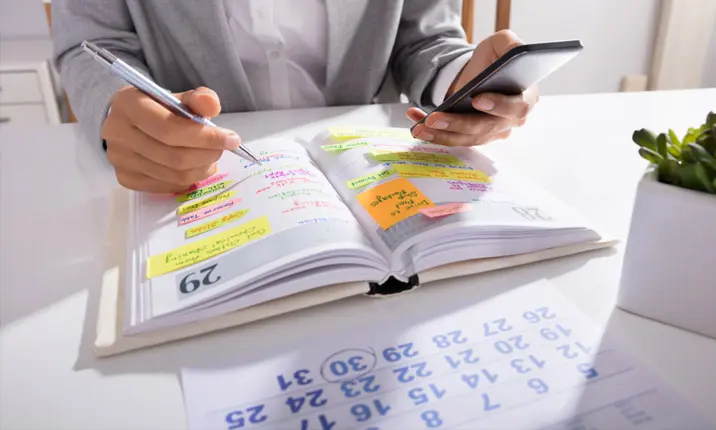

Source: Shutterstock
How to Work Hard Without the Health Risks
Last updated: Thursday, June 20, 2019 | 5 min reading time
Did you know that unhealthy work habits could lead to a higher risk of developing chronic mental and physical illnesses?
It's a known fact that Singaporeans spend a lot of time on work. Most of us clock in an average of 44 hours per week, which is higher than the regional average work week of 41.9 hours. With work taking up the majority of our time, it is not surprising that 1 in 3 Singaporeans are not getting enough exercise while 6 in 10 are getting less sleep than they need.
These unhealthy habits should be a cause for concern as they can lead to a higher risk of developing chronic mental and physical illnesses. Just last year, 6 in 10 working adults admitted that they were experiencing above average or high levels of work-related stress. Since there is a constant interaction between our mind and body, stress and other mental health issues could inadvertently cause physical illnesses such as upper respiratory tract infections (URTI) and gastrointestinal diseases.
Moreover, long working hours could increase the likelihood of getting into workplace accidents and developing occupational diseases. A Ministry of Manpower report showed that there were 6,032 and 294 cases of workplace injuries and occupational diseases respectively in the first 6 months of 2018. The top 3 occupational diseases for that period were work-related musculoskeletal disorders, noise-induced deafness, and occupational skin diseases.
While it may not be possible to eliminate all forms of work stress, here are 6 ways to keep stress manageable and illnesses at bay so that they do not hinder your work performance.
1. Plan ahead and be realistic
Before starting a task or project, decide how much time you need for it, and plan a timeline for it. Break large tasks into more manageable parts, and factor in additional time for deadlines in case of unforeseen circumstances.
If you're taking on a large project or if the deadline is too tight, consider delegating some parts of the project so that you can better focus on the more important work. In addition, avoid taking up new work when you have too many existing tasks on hand.
By planning ahead, delegating work and saying "no" to additional work when necessary, you will be able to reduce the chances of you becoming stressed and frustrated due to an overwhelming workload.
2. Think positively
The mind is usually said to be the most powerful tool humans possess. Since the way we perceive a situation can affect our feelings, it is useful to remember that staying positive is within our control.
One way of doing so is to be objective. For instance, if your manager provided feedback on how to improve your presentation, you shouldn't interpret it as them implying that you are incompetent. Take the feedback positively, analyse what went wrong, focus on how to improve and move on. Instead of letting the perceived negative feedback be a yardstick of your capability, recall your strengths and successes to wean off the negative feelings.
Another way is not to let challenges overwhelm you. When faced with difficult issues, temporarily disengage your mind from them to let your mind rest. This allows you to tackle the problem with renewed energy after resting. Besides that, you can also break down the problem into smaller parts so that it seems less overwhelming, and seek help from your family and friends.
3. Feed your body right
Since food has a direct impact on our health, it is crucial to maintain a healthy and balanced diet. By eating healthy, you will not only be strengthening your immune system but also ensuring that you have enough energy throughout the day.
Instead of following fad diets, it is more important that you eat a good balance of food. As a guide, fill half of your plate with fruits and veggies, a quarter with wholegrains such as brown rice and wholemeal bread, and the final quarter with meat and other proteins.
4. Get physical
If you always feel tired even after getting enough sleep, it's a sign you're not exercising enough. By engaging in regular physical activity, you will feel more energetic as well as naturally "high" due to the endorphins that your body releases when you exercise. Besides that, exercising can help prevent chronic diseases such as heart diseases and improve mental health by reducing stress and anxiety.
So what are you waiting for? Lay out that mat and get started on simple workout routines at home, before building up the intensity and duration over time.
5. Set time aside for 'me time'
Spending time alone can help to refresh your mental and physical well-being. Set some time aside regularly to engage in activities that you enjoy as they can help you reduce mental clutter and stress. You should also take some time to reflect on your life to rediscover its meaning and perhaps set new goals.
6. Build strong relationships with your loved ones
While it is essential to have time alone, it is equally crucial to spend time with your family. Dedicating time for regular family activities or for routine chats can help build an environment where family members feel safe enough to freely share their thoughts, feelings and problems. This can help alleviate stress as it is easier to get through difficult times when you know that you have your family's support instead of facing it alone.
Given today's demanding work environments, it can be easy to be obsessed with work to the point that you forget to take care of yourself. However, it doesn't pay off in the long-term as it may lead to stifled creativity, lower productivity, and even chronic illnesses. So before you fall victim to work stress, why not take the conscious effort to effectively manage and reduce stress so that you can always perform optimally at work?
10 Easy Ways to Manage Stress (2018, July 30). Retrieved March 5, 2019 from https://www.healthhub.sg/live-healthy/426/10easywaystomanagestress
Ang, J. (2018, May 28). 60% of Singaporean staff experience above average stress levels. Retrieved March 5, 2019 from https://www.humanresourcesonline.net/60-of-singaporean-staff-experience-above-average-stress-levels/
Jeong, H. (2019, January 11). More than 40% of Singaporeans not getting enough sleep: Study. Retrieved March 5, 2019 from https://www.todayonline.com/singapore/more-40-sporeans-not-getting-enough-sleep-study
Sunil, P. (2019, February 27). Malaysia ranks 19th globally on the Total Workforce Index. Retrieved March 5, 2019 from https://www.humanresourcesonline.net/malaysia-ranks-19th-globally-on-the-total-workforce-index/
Tan, T.M. (2018, August 21). Number of workplace injuries falls: MOM. Retrieved March 5, 2019 from https://www.straitstimes.com/singapore/number-of-workplace-injuries-falls-mom
Wong, P.T. (2019, August 2). Singapore's sleep-deprived millennials snooze longer on weekends; habit a worrying sign. Retrieved March 5, 2019 from https://www.todayonline.com/singapore/singapores-sleep-deprived-millennials-snooze-longer-weekends-habit-worrying-sign
Ang, J. (2018, May 28). 60% of Singaporean staff experience above average stress levels. Retrieved March 5, 2019 from https://www.humanresourcesonline.net/60-of-singaporean-staff-experience-above-average-stress-levels/
Jeong, H. (2019, January 11). More than 40% of Singaporeans not getting enough sleep: Study. Retrieved March 5, 2019 from https://www.todayonline.com/singapore/more-40-sporeans-not-getting-enough-sleep-study
Sunil, P. (2019, February 27). Malaysia ranks 19th globally on the Total Workforce Index. Retrieved March 5, 2019 from https://www.humanresourcesonline.net/malaysia-ranks-19th-globally-on-the-total-workforce-index/
Tan, T.M. (2018, August 21). Number of workplace injuries falls: MOM. Retrieved March 5, 2019 from https://www.straitstimes.com/singapore/number-of-workplace-injuries-falls-mom
Wong, P.T. (2019, August 2). Singapore's sleep-deprived millennials snooze longer on weekends; habit a worrying sign. Retrieved March 5, 2019 from https://www.todayonline.com/singapore/singapores-sleep-deprived-millennials-snooze-longer-weekends-habit-worrying-sign
 Brain & Spine Care
Brain & Spine Care










